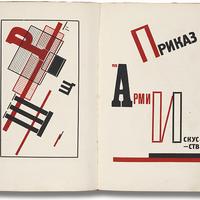3.
3. Ein seltsames Verb "sein" (ein seltsames Verb "sein")
3. A strange verb "to be"
3. Un étrange verbe "être" (un étrange verbe "être")
3. Um estranho verbo "ser" (um estranho verbo "ser")
3. Garip bir "olmak" fiili (a strange verb "to be")
Странный глагол "быть" (a strange verb "to be")
Garip bir "olmak" fiili.
Странный глагол «БЫТЬ» (a strange verb “to be”)
Strange verb “to be” (a strange verb “to be”)
Extraño verbo "BE" (un extraño verbo "to be")
Garip bir "olmak" fiili.
У русского глагола «быть» нет настоящего времени (no Present)!
The Russian verb "to be" has no present tense (no Present)!
¡El verbo ruso "ser" no tiene tiempo presente (sin presente)!
Rusça "to be" fiilinin şimdiki zamanı yoktur (Şimdiki zaman yok)!
В настоящем времени существует у него только одна форма «есть»:
In the present tense there is only one form "is":
En el tiempo presente, solo tiene una forma "es":
Şimdiki zamanda "is" kelimesinin sadece bir şekli vardır:
У меня есть, у тебя есть, у него есть – и переводится как:I have,you have,he has…
I have, you have, he has - and translates as: I have, you have, he has ...
Yo tengo, tú tienes, él tiene - y se traduce como: Yo tengo, tú tienes, él tiene...
I have,you have,he has - ve şu şekilde tercüme edilir: I have,you have,he has....
Мы не говорим: Я есть учитель.
We do not say: I am the teacher.
No decimos: yo soy el maestro.
"Ben öğretmenim" demiyoruz.
Мы говорим: Я учитель.
We say: I am a teacher.
Мы не говорим: Он есть доктор.
Мы говорим: Он доктор.
Мы не отрицаем: Он не есть учитель.
We do not deny: He is not a teacher.
No lo negamos: no es un maestro.
Мы отрицаем: Он не учитель.
We deny: He is not a teacher.
Мы не отрицаем: Он не есть доктор.
Мы отрицаем: Он не доктор.
We deny: He is not a doctor.
Но у глагола «быть» есть прошедшее время (Past):
But the verb "to be" has past tense (past):
Я был\а
I was
Ты был\а
Он был
He was
Она была
Оно было
It was
Мы были
We were
Вы были
You were
Они были
Вчера я был у врача.
Yesterday I was at the doctor's.
Ayer estuve en el médico.
Где ты был вчера?
Where were you yesterday?
– Я был в школе.
- I was in school.
Где он был неделю назад?
Where was he a week ago?
– Неделю назад он был в Лондоне.
Где она была вчера вечером?
Where was she last night?
– Вчера вечером она была на дискотеке.
- Last night she was at a disco.
Где вы были вчера в 4 часа?
Where were you yesterday at 4 o'clock?
– Мы были на стадионе.
- We were at the stadium.
Мы играли в футбол.
We were playing football.
Где они были в марте?
Where were they in March?
– В марте они были в Германии.
И у глагола «быть» есть будущее время (Future):
And the verb "to be" has a future tense (Future):
Я буду
I'll be
voy a
Ты будешь
You'll
Он будет
Она будет
Оно будет
Мы будем
Lo haremos
Вы будете
Они будут
Эти формы могут использоваться сами по себе со значением ‘will be':
These forms can be used by themselves with the value 'will be':
Где ты будешь завтра утром?- Как всегда, я буду в школе.
Where will you be tomorrow morning? - As always, I will be at school.
Где он будет в воскресенье?
Where will he be on Sunday?
¿Dónde estará el domingo?
– Он будет на стадионе.
He will be at the stadium.
Где она будет в следующую субботу?
Where will it be next Saturday?
– Она будет в парикмахерской.
"She'll be at the hairdresser's."
Где вы будете вечером?
Where will you be in the evening?
– Мы будем вечером в кино.
- We will be in the evening at the cinema.
Где они будут завтра?- Я не знаю, где они будут завтра.
Where will they be tomorrow? - I don't know where they will be tomorrow.
Но эти же формы используются, чтобы поставить в будущее время любой другой глагол:
But these same forms are used to put in the future any other verb:
Завтра я буду читать эту книгу.
Tomorrow I will read this book.
Что ты будешь делать в субботу?
What will you do on Saturday?
– В субботу я буду работать в саду.
- I'll be working in the garden on Saturday.
Что он будет делать в воскресенье?
What will he do on Sunday?
– В воскресенье он будет отдыхать весь день.
- On Sunday, he will rest all day.
Что она будет делать в воскресенье?
– В воскресенье она будет слушать музыку.
Что вы будете делать в понедельник?
What will you do on Monday?
– В понедельник мы будем опять работать.
- On Monday, we will work again.
Что они будут делать в выходные?- В выходные они будут изучать русский язык.
What will they do at the weekend? - At the weekend, they will learn Russian.
Отлично!
All right!
Я желаю им успехов!
I wish them success!
А я буду собирать грибы в нашем саду.
And I will pick mushrooms in our garden.
(написано по собственной методике Евгением40 для русской библиотеки Lingq, при использовании в иных местах необходима ссылка на автора)
(written by Evgeny40’s own method for the Russian Lingq library; when used elsewhere, a reference to the author is needed)
(scritto da Eugene40 per la biblioteca russa Lingq utilizzando la propria metodologia; è necessario fare riferimento all'autore se utilizzato altrove)
(escrito de acordo com seu próprio método por Evgeny40 para a biblioteca russa Lingq, se usado em outros lugares, é necessário um link para o autor)

